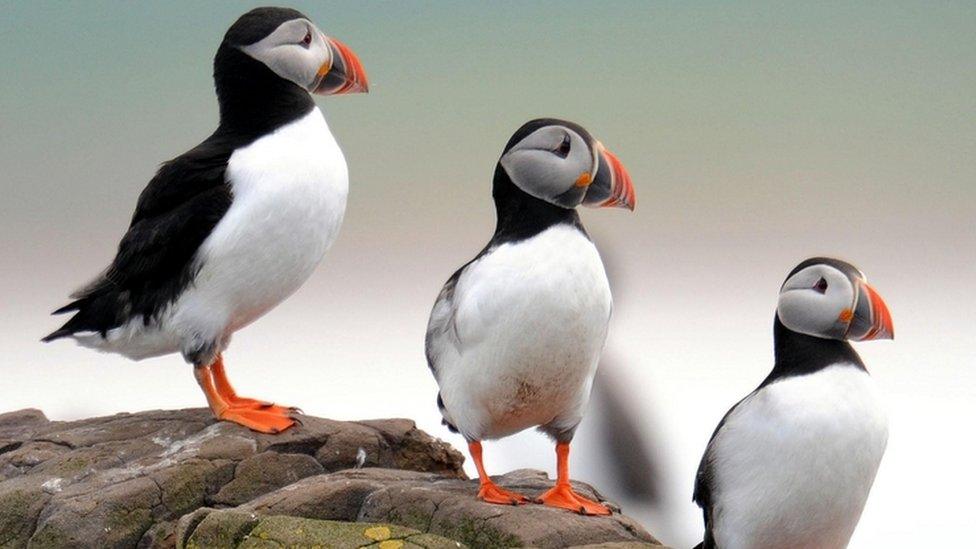'Disorientated' birds found dead in St Helier
- Published
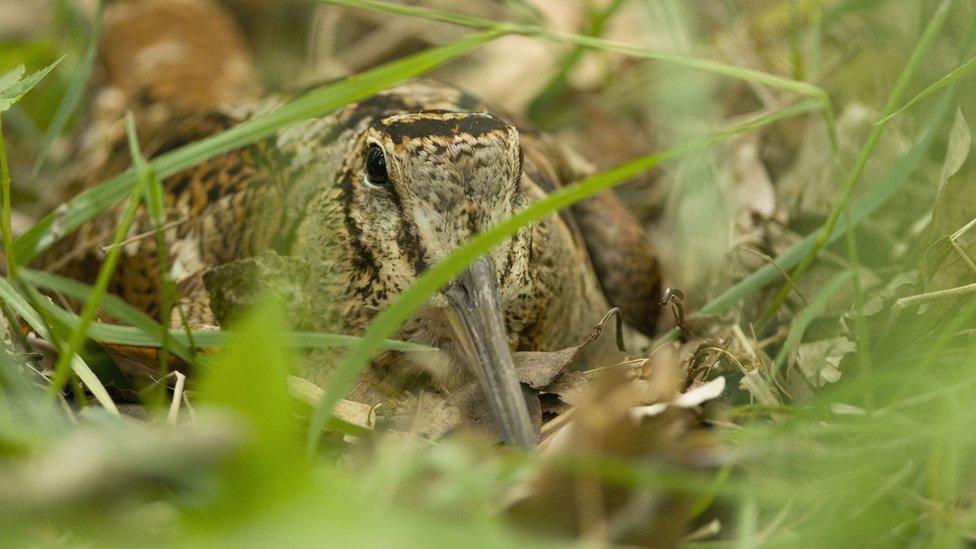
Woodcocks are thought to migrate more than 1,000 miles to the British Isles at the beginning of November, staying until March
A number of "disoriented" wading birds from a threatened species have died in Jersey.
Bird enthusiast Mick Dryden said about 10 woodcocks had been found in unusual parts of St Helier.
He said possibly the birds had become confused by artificial lights in the town, causing them to fly into nearby glass buildings.
The RSPB said people should interfere "as little as possible" with injured woodcocks they might come across.
Mr Dryden, Chairman of the Ornithology Section of the Societe Jersiaise, said the birds were not a common sight in St Helier.
However, he added: "Most birds are attracted by bright light at night...they will fly around them".
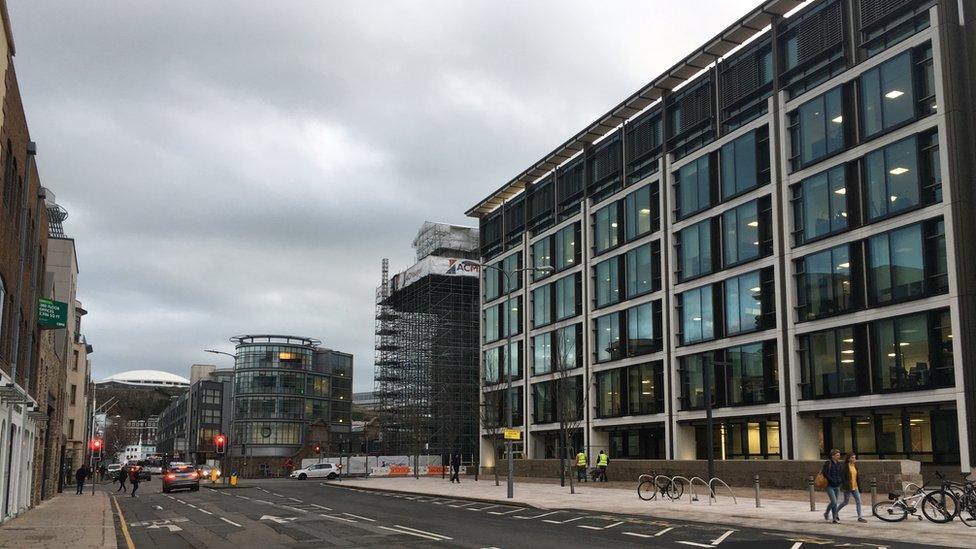
Mick Dryden said some glass panelled buildings in the waterfront and Esplanade areas left their lights on overnight
Mr Dryden accepted the issue could be due to more of the birds visiting the island than usual in 2018.
However, he observed the levels of ambient lighting around the Esplanade and waterfront areas of St Helier "seemed to be going up".
The birds, he said, were likely to have been blinded by lights in glass panelled office buildings in the area.

What is a woodcock?
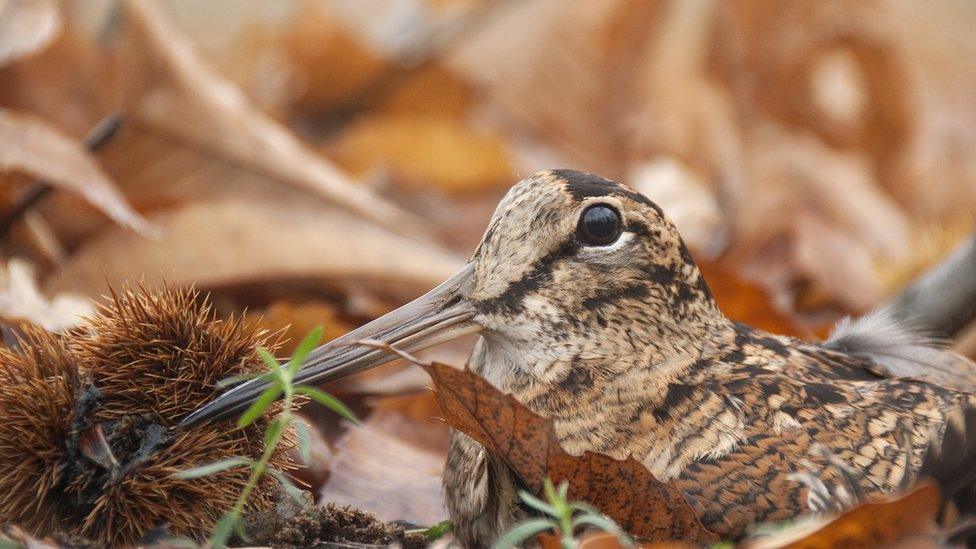
The woodcock has a wingspan of between 55-65cm (21-25in) and is "well camouflaged" Mr Dryden says
According to the RSPB charity a woodcock or scolopax rusticola is a "large, bulky, wading bird" with "short legs and a long, straight, tapering bill.
The birds are well known in the British Isles, and move over from Finland and Russia in autumn months.
Overall woodcock numbers have fallen, the RSPB said, possibly due to issues with its habitat, typically conifer forests.
The RSPB has put the woodcock on its conservation "red list", meaning it is considered "globally threatened" with "severe declines" in breeding population.

An RSPB spokeswoman recommended fixing an object to the outside of glass windows to indicate an obstacle to the woodcocks.
"Given time to recover in peace, they will normally fly off and resume their journeys when ready," it said.
John Pinel, from the States of Jersey's Department of the Environment, said it was recommended "no unnecessary lights" were left on in buildings overnight.
He added that "specially designed glass or stickers on windows" could help reduce birds hitting them.
- Published19 December 2018
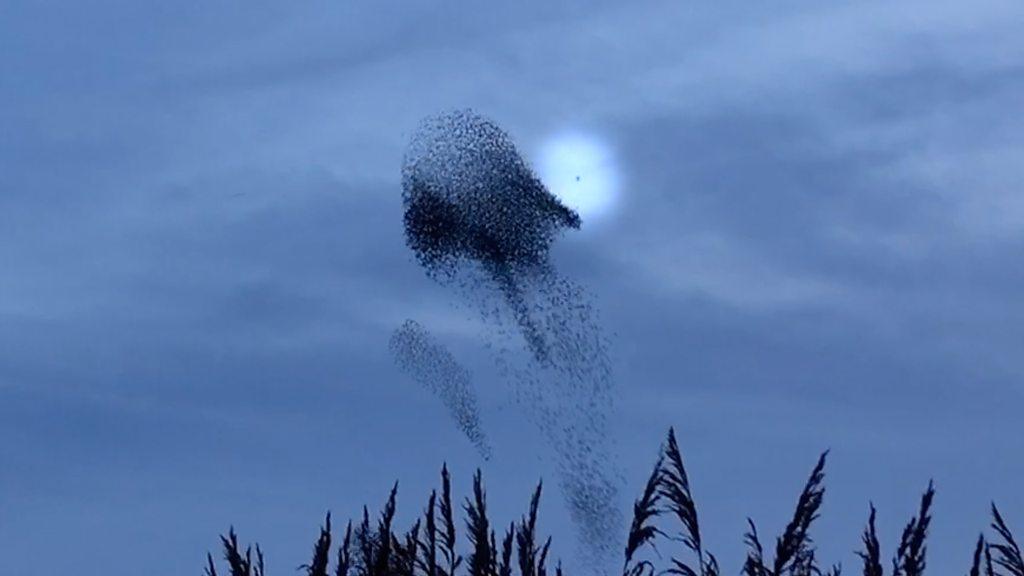
- Published6 December 2018
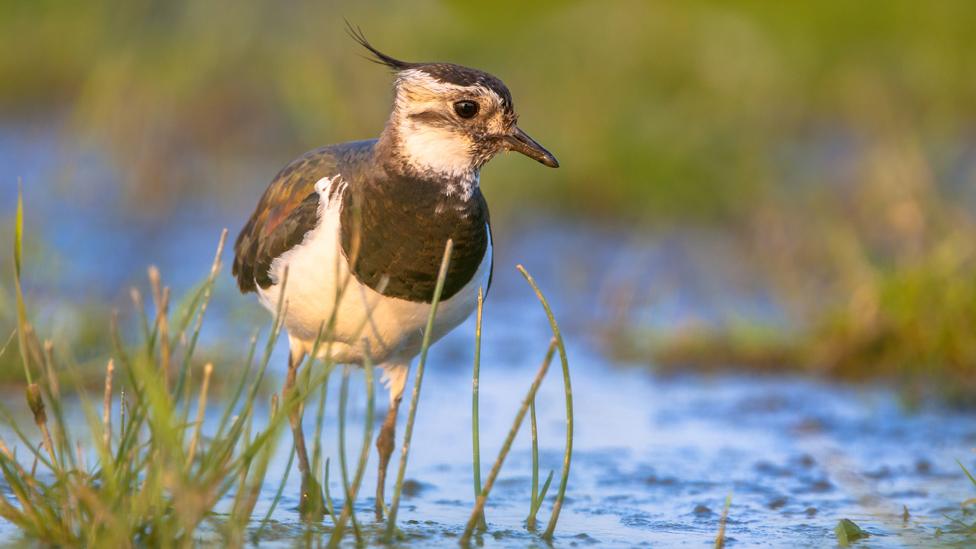
- Published29 October 2015
